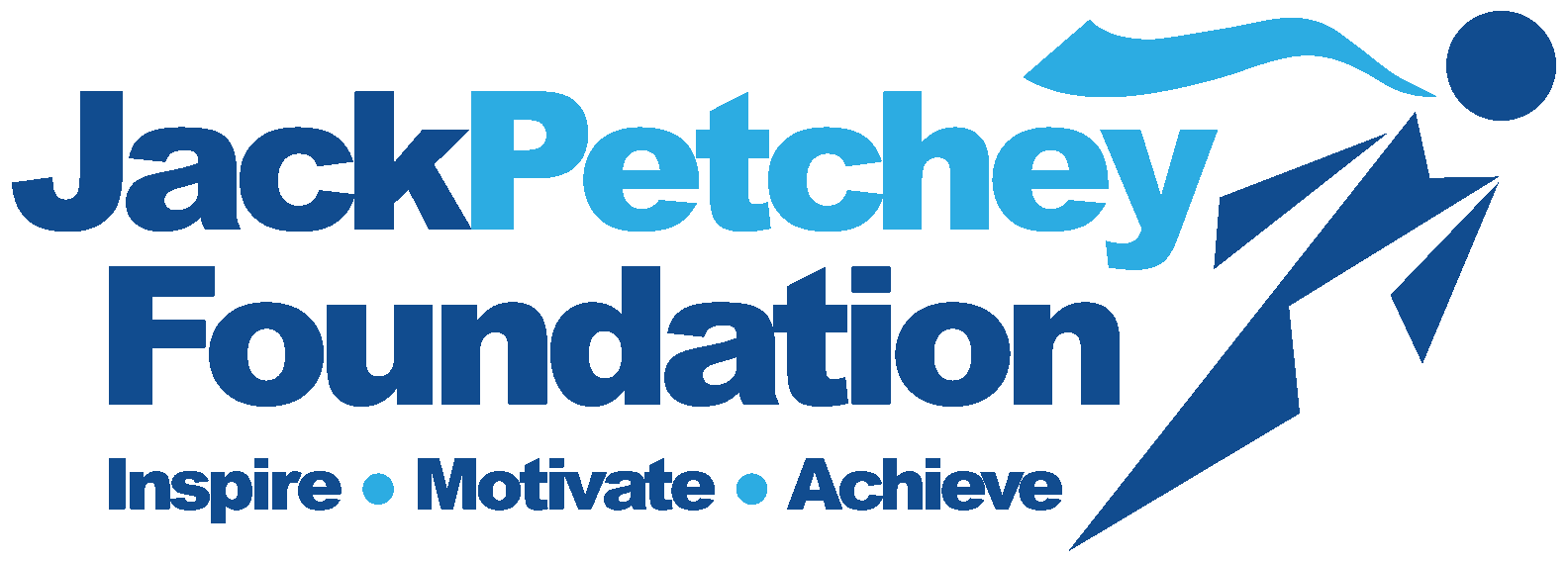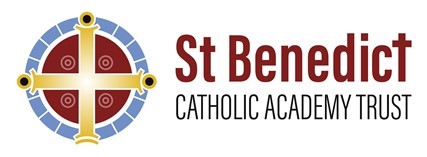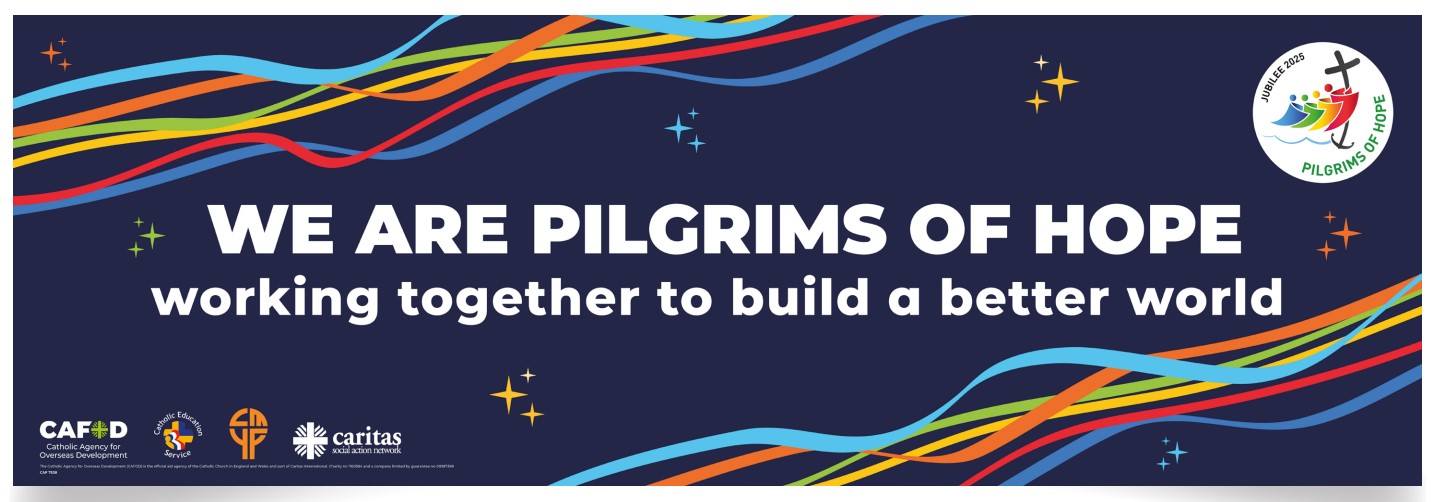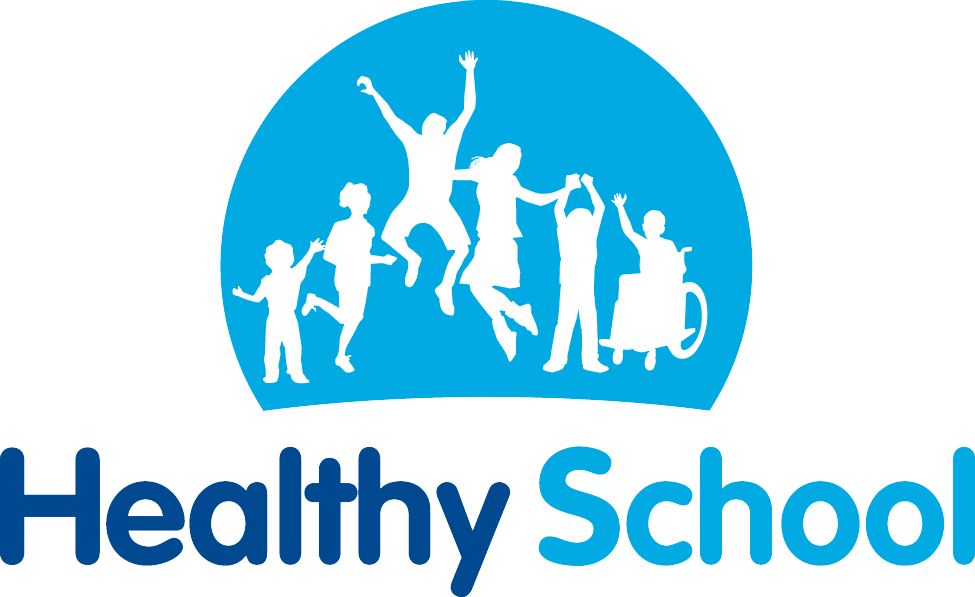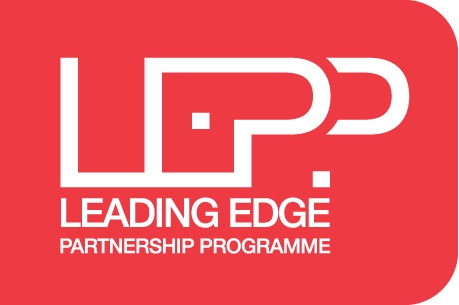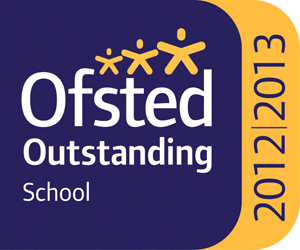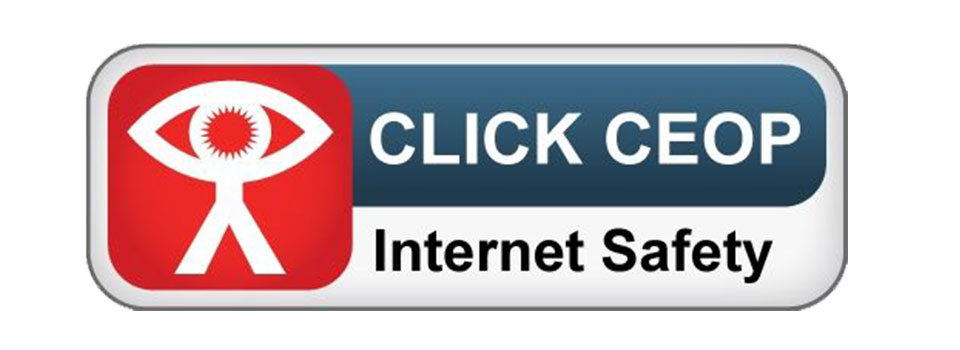CPHSE
- Aims
Personal, social, health and economic (PSHE) education is a non-statutory but important and necessary part of all pupils’ education (Department for Education, 2020).
At St Michael’s Catholic College we have high expectations of our children and strive to ensure that every child achieves academically, socially and personally through our school ethos and Salesian values of Respect, Understanding, Affection and Humour (RUAH).
Our PSHE programme is rooted in our core school values of bringing each person to the fullness of life through education within an environment that embraces Gospel, Salesian and British values – of serving others, respect, tolerance, loving kindness, reflection, democracy, rule of law and individual liberty. We seek to equip each child with a sound understanding of risk and the knowledge and skills required to safely and successfully make informed decisions that will aid them in navigating their way through life whilst at school and for the years that follow.
Refer to our relationships and sex education policy (RSE) for details about what we teach, and how we decide on what to teach, in this subject. This policy is based on the CES (Catholic Education Service) model policy 2020 and the updated statutory guidance from the Department for Education (2020).
- Intended Outcomes
Our PSHE programme has the following intended outcomes:
- To help pupils recognise their worth;
- To develop pupils’ recognition of the importance of British values with regard to democracy, the rule of law and tolerance;
- To develop each pupil’s ability to achieve economic wellbeing;
- To develop each pupil’s capacity for leading a fulfilling, responsible life as a member of a caring and thinking society;
- To provide opportunities for the spiritual, moral, social and cultural development of each pupil;
- To promote a happy and healthy college community, reflecting the ethos of the college.
Active engagement in learning, rather than passively receiving information, is most effective in teaching PSHE education. Pupils will have opportunities to consider and clarify their values and beliefs, and to rehearse and develop enquiry and interpersonal skills.
This policy ensures they will receive a comprehensive, balanced and relevant body of knowledge to inform their present and future choices.
- Curriculum
The CPHSE programme is delivered both through the main KS3 and KS4 National Curriculum subjects (in particular, History, RE and Science) as well as seven timetabled 1 hour lessons throughout the school calendar year. This provision is further supported by bespoke whole-school programmes such as Careers and Enterprise Week in July and Diversity Week in October.
The CPHSE specific lessons are delivered to students in their form groups by their tutor. All staff are provided with tailored materials, detailed teacher-support documents and bespoke CPD as required.
Students complete baseline assessments before and after the interventions, through which progress can be tracked in relation to the stated aims above. All students will also complete subject-specific workpacks that will complement one 1 hour taught session and one homework. Assessments and workpacks will be completed and submitted through the Google suite. Form tutors will collate and check submissions and record mentions for incomplete work in line with the college Behaviour Policy.
Topics to be covered are divided into three main themes, each of which is sub-divided into specific provision:
- Identities and Communities
– Diversity, Migration and Belonging
– Black British History
– Gender and Sexuality
- Rights and Responsibilities
– Rights, Justice and The Law
– Politics, Parliament and Government
- Health and Wellbeing
– Physical and Mental Health
– Digital and Economic Health
Each lesson seeks to build on the learning from the previous year, with students developing confidence and proficiency within these main themes as they progress through the Years 7-11 at the college.
The topic of “Black British History” that forms a sub-section of the Identities and Communities provision follows a separate 5 year plan (see Appendix i). Students receive access to the same learning across year groups for these topics, with differentiation between KS3 and KS4.
The topics for June in Years 10 and 11 are left open, so that specific lessons can be designed according to changing local, national and international contexts.
Below is a summary of the topics taught in specific CPHSE lessons in each year group throughout the academic year:
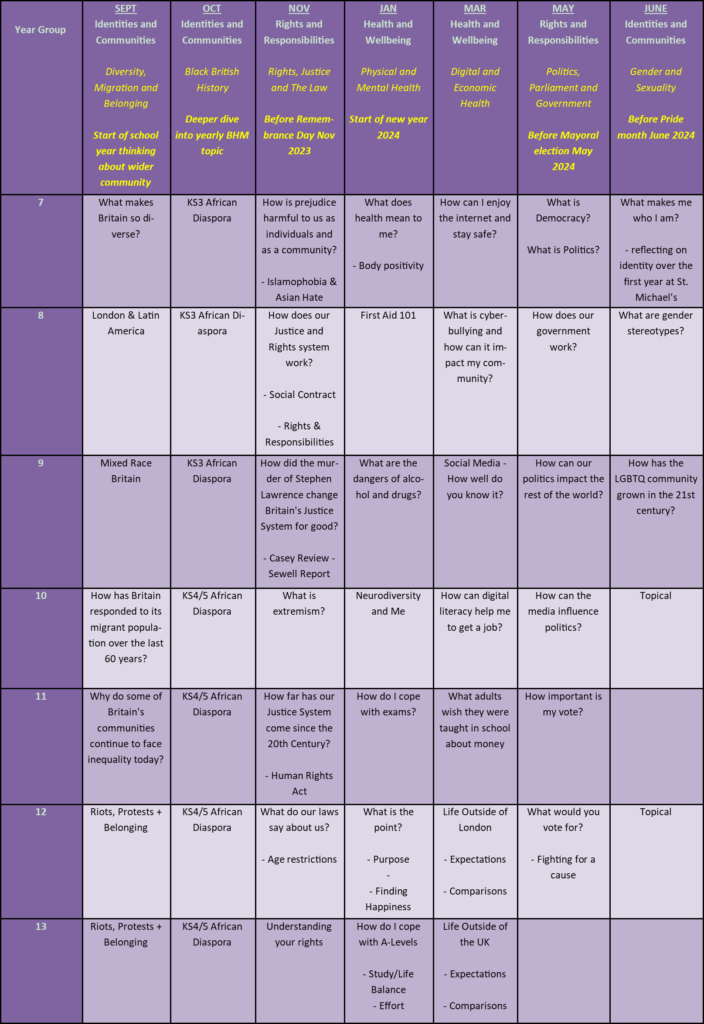
Black History Month 2022-26




